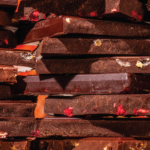Do you hear the ringing of the holiday bells everywhere? Well, it’s Diwali time, that time of year! Diwali, also referred to as the “festival of lights,” is a nationwide celebration of the return of the mythological Shri Rama and Ma Sita after a 14-year exile.

The victory of goodness in the world is the festival’s main celebration. Typically taking place in October or November, this captivating and culturally rich event is a time of lively celebrations, get-togethers with family, and intricate customs. This blog will explore the fundamentals of Diwali and its customs before delving into the realm of ethnicThe Indian Diwali Festival Diwali is a feeling that unites people, not just a festival.
Diwali is more than simply a holiday; it’s a feeling that binds Indians and Indian diaspora members worldwide. It represents the triumph of good over evil and the homecoming of Lord Rama to Ayodhya following his victory over the demon king Ravana. Every area of the nation is illuminated with a variety of lights and lamps as the celebrations come to life. Each of the five days of the celebration has its unique traditions and significance. First Day: Dhanteras The auspicious Dhanteras festival, a day devoted to wealth and prosperity, sometimes marks the start of the Diwali celebrations. People pray to Goddess Lakshmi, buy precious metals, and clean and adorn their homes.
Day 2: Chaturdashi
Naraka On the day of Naraka Chaturdashi, also called Choti Diwali, Lord Krishna slew the monster Narakasura. To commemorate the triumph of good over evil, people light oil lamps, take oil baths, and change their attire.
Day 3: Diwali
On the third day of the celebrations, the festival you have been anticipating has finally arrived. People light diyas, or clay lamps, and adorn their homes with vibrant rangoli patterns on this day. Firecrackers and fireworks light up the night sky. Families get together to pray and share sweets and gifts. Day 4: Puja of Govardhan On this day, people remember how Lord Krishna raised the Govardhan Hill to shield the locals from the deluges. In order to worship Lord Krishna, devotees arrange extravagant vegetarian feasts and carry out ceremonies.











